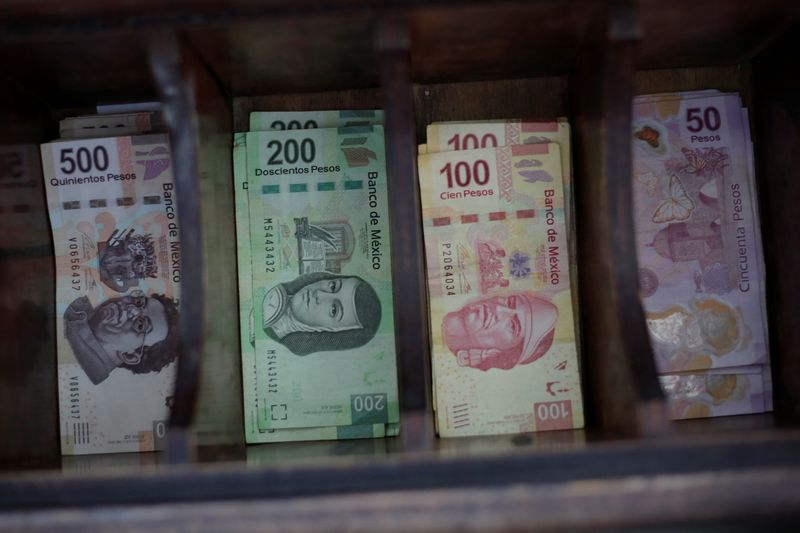By Rodrigo Campos
NEW YORK (Reuters) - The Mexican peso tumbled on Monday as investors worried that trade disputes would again whipsaw markets after U.S. President Donald Trump’s overnight threat to impose steep tariffs on Colombia.
On Sunday, Trump said the White House would levy 25% tariffs on Colombia imports, mainly crude oil , coffee and flowers. His threat came after Bogota rejected U.S. military planes carrying deportees.
In a late night deal, Colombian and U.S. diplomats worked out an agreement for Bogota to accept the deportees without incurring tariffs.
"The market, over the last couple of weeks, had become complacent to the threat of tariffs, with the hope that the (U.S.) administration will take a more gradual approach," said Arif Joshi, co-head of emerging markets debt at Lazard (NYSE: LAZ ) Asset Management.
"Not only do this weekend's events lower the probability of that theory, but also remind of how quickly the Trump Administration can turn on trade threats," he added. "Everything else being equal, that increases volatility, increases risk and decreases currency valuations versus the U.S. dollar."
The Colombian peso fell as much as 1.8% on Monday but pared most losses and was recently down 0.65% near 4,200 per dollar. Yet analysts at Wells Fargo (NYSE: WFC ) recommended shorting the currency with a target of 4,600 per dollar, nearly 9% weaker.
Investors are jittery about how combustible things can get between Washington and its trading partners.
The Mexican peso fell as much as 2.3% on Monday, giving back almost all its year-to-date gains. The currency fell almost 20% to the dollar in 2024.
Mexico and Canada face a Feb. 1 deadline to meet Trump's demands on border security and other issues or Washington will slap tariffs of 25% on imports from their countries.
"The risk of those tariffs happening is perceived to have gone up," said Graham Stock, senior sovereign strategist for emerging markets at RBC Global Asset Management.
"The reason why the Colombian peso has recovered a lot of its ground is because it is clear that if you back down, things go back to their original settings," he said.
He said the Mexican peso was hit hardest as the country has a lot of work to do to address Trump's demands which concern not just immigration but drug cartel violence, a trade deal and illegal fentanyl shipments to the U.S.
Trump's targeting of Colombia came as a surprise given the long-standing relationship between the two countries and the relatively small scale of the Colombian economy. President Gustavo Petro's leftist ideology may have been a factor, and in addition he escalated the spat with Trump with dueling posts on social media.
"Trump likely thought it was politically expedient to go after Colombia ... given that the country means little for the U.S. in terms of trade, and the leverage that Trump would likely gain over more important trading partners by making Colombia an example," said Aaron Gifford, senior EM sovereign analyst at T. Rowe Price.
"We've already seen the market trying to sniff out the next area of conflict, with the Mexican peso depreciating far beyond the Colombian peso on the day. There will be a bit of a guessing game going on as investors try to steer clear of any countries directly or indirectly in the line of fire."
Other investors remained cautiously optimistic on emerging market debt as long as threatened tariffs do not materialize.

"We continue to like EM hard currency debt which we think will be resilient in the face of headline risk around tariffs," said Shamaila Khan, head of fixed income for Emerging Markets and Asia Pacific at UBS Asset Management.
"I do want to emphasize that there have been only headlines around tariffs so far, so the base case is that they are a means to an end rather than a desired outcome."
